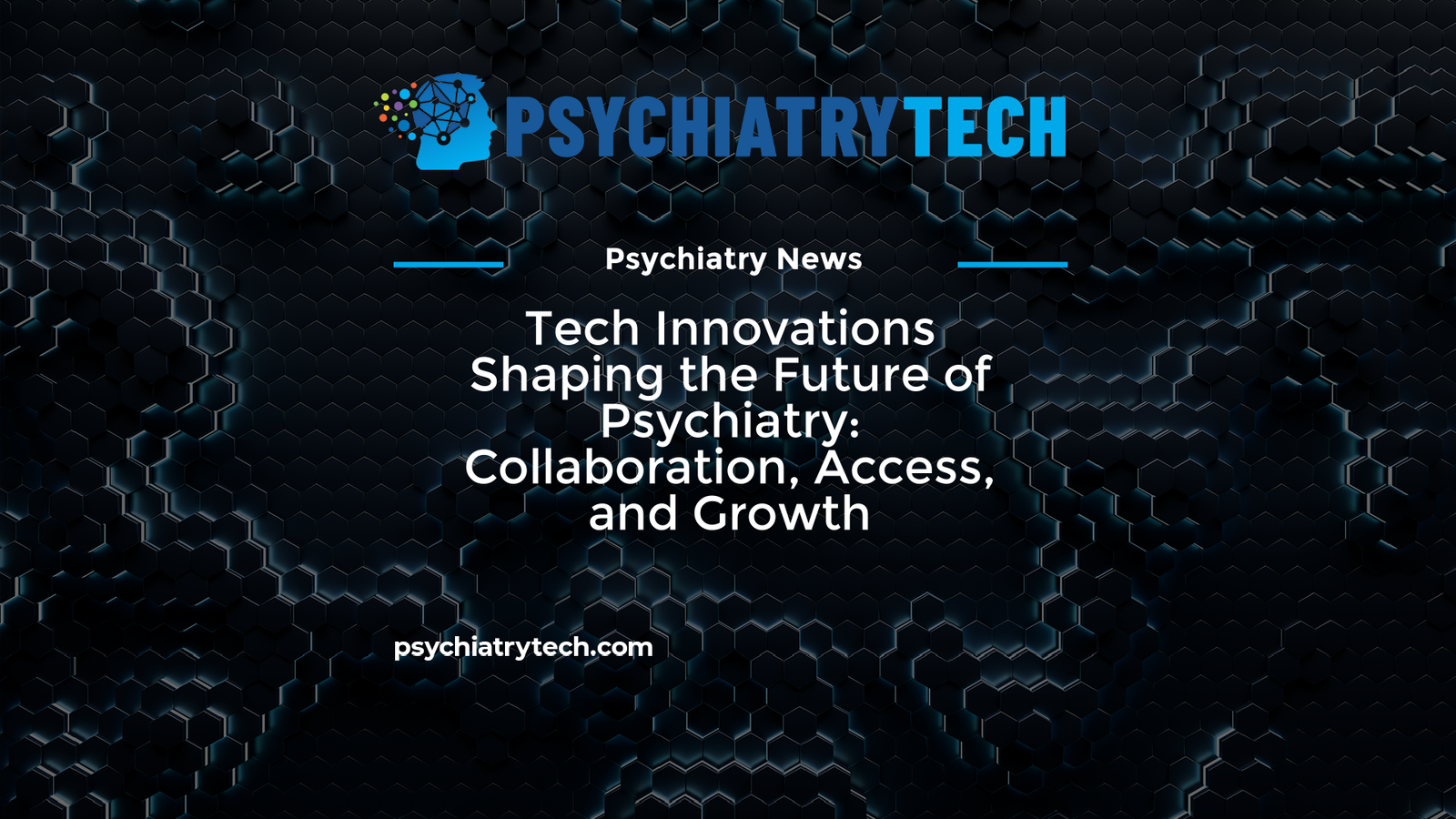Tech Innovations Shaping the Future of Psychiatry: Collaboration, Access, and Growth
As the world becomes increasingly digital and interconnected, technology is transforming the field of psychiatry. Innovative tools and techniques are revolutionizing the way mental health professionals diagnose and treat a range of conditions, from depression and anxiety to more complex disorders such as schizophrenia and bipolar disorder. However, the full potential of these technologies will only be realized through collaboration, increased access, and sustained growth.
Collaboration is Key
Psychiatry technology is a rapidly growing field that requires collaboration between clinicians, researchers, and technology developers. The integration of technology into mental health care can only be successful when developers work closely with professionals in the field. Professionals should provide expertise from diagnosis to treatment and monitoring of conditions using technology. Creating these collaborations, considering different ideas, understanding the limitations, and sharing knowledge can lead to the development of new, advanced tools.
This collaboration is already happening, wherein software developers are collaborating with clinicians to create applications and software that can assist in mental health treatments. One example of this is the creation of Virtual Reality (VR) applications to treat PTSD and anxiety disorders. In partnership with psychologists, some companies have created VR environments that simulate traumatic scenarios, enabling patients through guided exposure therapy to desensitize from the negative effects. This collaboration is an excellent success illustrated by the FDA approving the use of VR for the treatment of PTSD in 2021.

Discover The World's MOST COMPREHENSIVE Mental Health Assessment Platform
Efficiently assess your patients for 80+ possible conditions with a single dynamic, intuitive mental health assessment. As low as $12 per patient per year.
Increased Access
The technology revolution in psychiatry is also expanding access to mental health care. Telepsychiatry and other remote means to mental health care, such as chatbots, are already giving treatment to people, regardless of their location, time or schedules. This has created easier and more cost-effective access to mental health care, particularly in struggling low-income communities. Remote treatment could remove the stigma often associated with mental health disorders and encourage people to open up through digital platforms. Subsequently, professionals in this field can diagnose and treat patients easily and accurately and monitor their progress, improving the patient’s lives.
Sustained Growth
Technology advancements in psychiatry have also led to sustained growth in research and development. The use of Artificial Intelligence (AI) and Big Data analytics in psychiatric research has been an enormous boost towards the analysis of psychiatric disorders for a more comprehensive understanding of causes, symptoms, and diagnosis. Using AI and Big Data analytics, professionals in this field can produce better, more accurate mental health diagnoses that can lead to the development of better treatments and therapies.
Another noteworthy area of innovation driving the growth is the use of wearable devices in psychiatric treatment. These devices allow tracking and analyzing mental health data, coupled with the treatment plan to monitor mental health conditions’ progress. The data generated can help professionals detect any abnormal development or changes in the patient’s psychological state, which will help adjust the patient’s treatment accordingly effectively.
Conclusion
The future of technology and psychiatry looks bright with many advances that have produced beneficial results. The collaboration between technology, research, and treatments, however, may take time, resources and, communication to perfect before its features develop. Mental health care professionals, researchers, and technology developers must work together to drive advancements and build innovative tools that will create impactful changes for mental health care.
What do you think about technological advances in psychiatry, and how might this affect the future of mental health care? Help create more awareness about technology’s transformation of mental health care by sharing this article with your family, friends, and colleagues on social media. Follow our website, Psychiatry Tech, for more insights about technology’s impact on mental health care.

